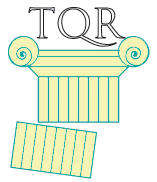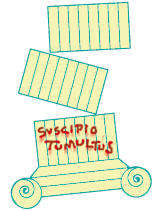Post by sturgeon on Mar 8, 2024 18:46:22 GMT
A fantasy inspired by African folklore - that's unusual enough territory for a cap to make me want to pay attention.
I'm afraid I don't know enough about African folklore to know how authentic it is - I believe tikoloshes are South African, and obayifo are Ghanaian, so I guess it's a mixture of traditions? Anyway, to me, the references to African folklore felt more like garnish than the meat of the capital.
The meat, in this case, is a royal judge who is tiring of his duties. We start with him sentencing an "oathbreaker" for summoning a trickster spirit, with their dialogue serving as exposition of the nature and history of this world. Then the judge is called home to attend the difficult birth of his son. The stakes are high for this section - will baby and mother survive? - but neither the main character nor his parturient wife have any agency (she faints, he just shouts at the midwives), which makes the scene feel drawn out. Until...
Only about two-thirds of the way through did I understood what was playing out: Raimi gritted his teeth, his mouth dry as a desert. “We need stronger magic.”
So it turns out the core moral question is: will the judge who has punished so many people for committing dark magic, in desperation, resort to dark magic himself? (And if he does, will he be punished in turn, or will the prohibition be declared unjust?) That is a dramatically interesting question, albeit one that's hard to relate to directly.
In the melodramatic final third, he does the forbidden magic, and is permanently weakened by it, but in the end both mother and baby are saved. To his credit, he declares his intent to turn himself in to the authorities - a meaningful metaphorical message in an era when our own leaders and judges believe themselves to be above the law.
There's also a bit where he realises that one of the midwives seems to have done a similarly sacrificial unsanctioned summoning? But that was confusing because we never learned anything much about her character, and the consequences (in terms of whether she too must therefore be punished) aren't really addressed.
So, this is cool, but it ain't perfect. Flawed but interesting. For my tastes, the whole thing could do with a trim.
On balance, I'm voting "No".
I spotted one grammatical issue: inconsistency between "oathbreaker" and "oath breaker"
I'm afraid I don't know enough about African folklore to know how authentic it is - I believe tikoloshes are South African, and obayifo are Ghanaian, so I guess it's a mixture of traditions? Anyway, to me, the references to African folklore felt more like garnish than the meat of the capital.
The meat, in this case, is a royal judge who is tiring of his duties. We start with him sentencing an "oathbreaker" for summoning a trickster spirit, with their dialogue serving as exposition of the nature and history of this world. Then the judge is called home to attend the difficult birth of his son. The stakes are high for this section - will baby and mother survive? - but neither the main character nor his parturient wife have any agency (she faints, he just shouts at the midwives), which makes the scene feel drawn out. Until...
Only about two-thirds of the way through did I understood what was playing out: Raimi gritted his teeth, his mouth dry as a desert. “We need stronger magic.”
So it turns out the core moral question is: will the judge who has punished so many people for committing dark magic, in desperation, resort to dark magic himself? (And if he does, will he be punished in turn, or will the prohibition be declared unjust?) That is a dramatically interesting question, albeit one that's hard to relate to directly.
In the melodramatic final third, he does the forbidden magic, and is permanently weakened by it, but in the end both mother and baby are saved. To his credit, he declares his intent to turn himself in to the authorities - a meaningful metaphorical message in an era when our own leaders and judges believe themselves to be above the law.
There's also a bit where he realises that one of the midwives seems to have done a similarly sacrificial unsanctioned summoning? But that was confusing because we never learned anything much about her character, and the consequences (in terms of whether she too must therefore be punished) aren't really addressed.
So, this is cool, but it ain't perfect. Flawed but interesting. For my tastes, the whole thing could do with a trim.
On balance, I'm voting "No".
I spotted one grammatical issue: inconsistency between "oathbreaker" and "oath breaker"




